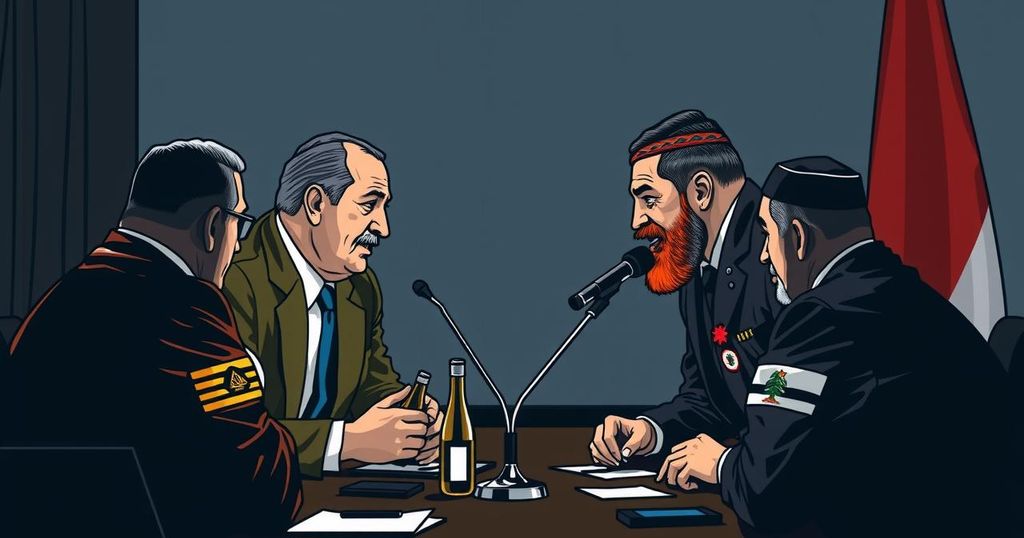U.S. Envoy Engages in Efforts for Israel-Hezbollah Ceasefire in Lebanon
On November 20, 2024, U.S. envoy Amos Hochstein visited Lebanon to facilitate ceasefire talks between Israel and Hezbollah, amidst escalating conflict. Key figures such as Prime Minister Najib Mikati and Parliament Speaker Nabih Berri met with Hochstein, highlighting progress in negotiations. However, Hezbollah’s leader emphasized their refusal to accept terms undermining Lebanese sovereignty while Israeli officials stated any ceasefire must allow them to respond to violations. The success of these discussions remains contingent upon the seriousness and clarity of responses from both parties.
On November 20, 2024, U.S. envoy Amos Hochstein undertook a visit to Lebanon to negotiate a ceasefire between Israel and Hezbollah amidst escalating conflict. The United States, along with France, has been actively working towards achieving a truce as hostilities intensified following a series of sustained exchanges of fire that began in late September. Hochstein expressed optimism about reaching a resolution, stating that an end to the conflict was “now within our grasp.”
During his visit, Hochstein engaged with Lebanese officials, including Prime Minister Najib Mikati and Parliament Speaker Nabih Berri, expressing that progress had been made. Berri, a Hezbollah ally, indicated that some technicalities remained to be addressed. The conversation evolved as Hezbollah’s leader, Naim Qassem, asserted that his group would not accept a ceasefire that compromised Lebanese sovereignty, emphasizing, “the Israeli enemy cannot enter (Lebanese territory) whenever it wants.”
Hochstein, after two days of discussions in Beirut, communicated his intent to travel to Israel in hopes of finalizing a ceasefire agreement. His remarks underscored a potential opportunity to cease hostilities. However, Israeli Foreign Minister Gideon Saar stipulated that any agreement must allow Israel the necessary freedom to counteract Hezbollah’s actions if necessary. Qassem reiterated that the potential for a ceasefire depended heavily on the Israeli government’s willingness to engage seriously in diplomatic discussions, especially in light of recent violent incidents involving Israeli strikes in Lebanon.
The ongoing conflict between Israel and Hezbollah has intensified significantly in recent months, with exchanges of fire becoming increasingly frequent and deadly. This escalation, primarily fueled by tensions related to Lebanon’s sovereignty and Israel’s military engagements, has prompted international concern and intervention efforts from the United States and France. The goal of these diplomatic initiatives, led by representatives like Amos Hochstein, is to establish a ceasefire that might pave the way for long-term stability in the region and protect Lebanese sovereignty against perceived Israeli aggression.
In conclusion, the recent diplomatic efforts spearheaded by U.S. envoy Amos Hochstein reflect a critical moment in the ongoing conflict between Israel and Hezbollah. With both sides engaged in discussions on potential terms for a ceasefire, the outcome will depend on the complexity of negotiations regarding military actions and sovereignty issues. The international community remains hopeful that these talks will lead to a durable resolution and alleviate the humanitarian impact of the conflict.
Original Source: jordantimes.com




Post Comment